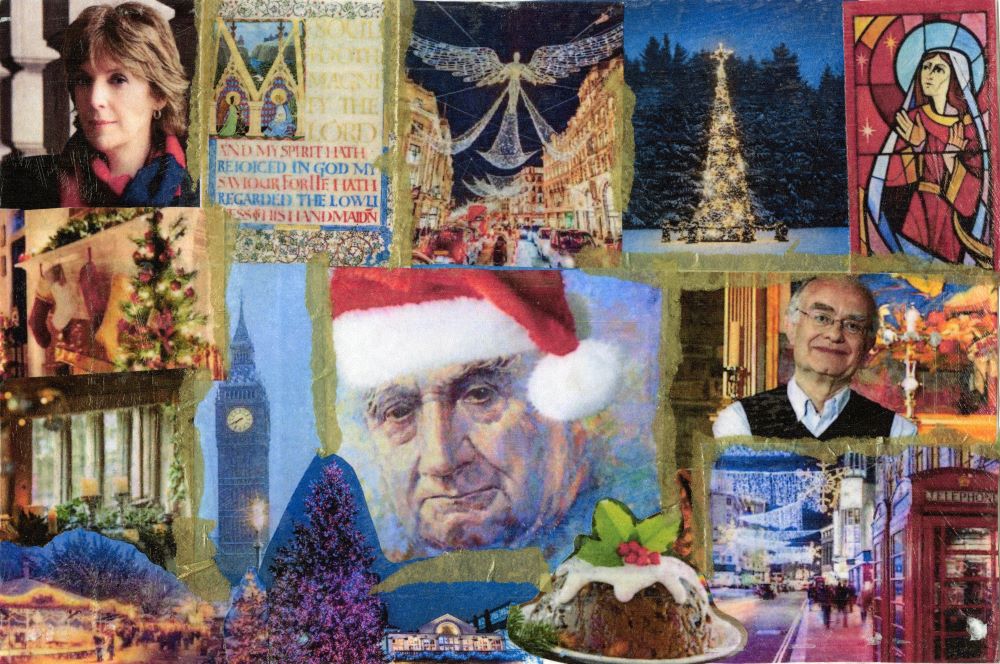
Saturday, December 7, 2024 at 8:00 pm
Fifteenth Annual Cathedral Christmas
Pre-concert talk at 7:00 pm by director Freddie Coleman
Audience carol sing-along at 7:30 pm
Featured Works
Magnificat by John Rutter
Christmas Cantata “Christus Natus Est” by Cecilia Mc Dowall
Fantasia on Christmas Carols by Ralph Vaughan Williams
“And it was always said of him, that he knew how to keep Christmas well, if any man alive possessed the knowledge. May that be truly said of us, and all of us! And so, as Tiny Tim observed, God bless Us, Every One!”
― Charles Dickens, A Christmas Carol
This year, the heart of any Scrooge will take delight in this concert devoted to English choral works for the Christmas season. Start off your holidays in the right spirit with the Seattle Choral Company’s Comfort & Joy: An English Christmas.
Returning to our concert stage will be talented soloists Jennifer Bromagen, soprano; and Darrell Jordan, baritone. Members of the North Corner Chamber Orchestra will also take part in this merry and festive holiday evening.
Guest Artists
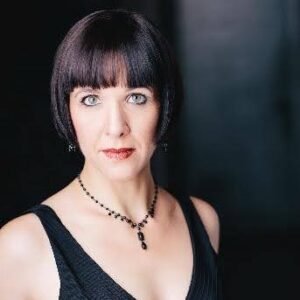 Jennifer Bromagen, soprano
Jennifer Bromagen, soprano

Darrell Jordan, baritone
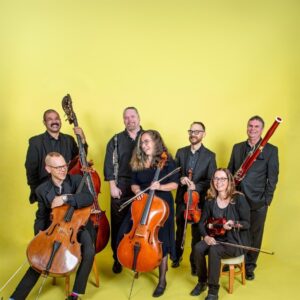
Members of North Corner Chamber Orchestra
About the Music
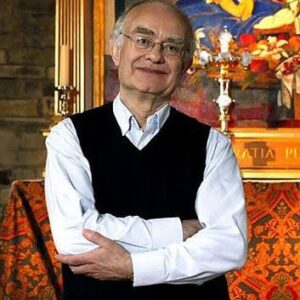
John Rutter
John Rutter’s Magnificat for soprano soloist, choir and orchestra was written in 1990, and the première took place in May of that year in Carnegie Hall, New York.
The Magnificat, also called the canticle of the Virgin Mary, is found in the opening chapter of St. Luke’s Gospel, the point where Mary visits her cousin Elizabeth after learning that she is to be the mother of Christ. Traditionally, the words have been ascribed to Mary, though their strong resemblance to the Old Testament Song of Hannah and to various psalms makes it more likely that Luke himself interpolated them to express an appropriate sense of rejoicing and trust in God.
Liturgically, the Magnificat belongs to the Office of Vespers (and its Anglican counterpart, Evensong) and to feasts of the Virgin Mary, and there are innumerable concise musical settings intended for use in church. Extended concert settings, however, are quite rare, Bach’s being the most notable (and even this was designed for use in the Lutheran liturgy). In the general layout of its movements and in its scale and dimensions, Bach’s Magnificat provided the obvious precedent for John Rutter’s setting. There is even a parallel to Bach’s Christmas interpolations in the use of a vernacular text on the Virgin Mary – Of a Rose, which (like so much medieval religious art) likens Mary and her child to a flower springing from the stem of Jesse.
Like Bach, Rutter uses Gregorian themes associated with the text at various points in the work. But there, all comparisons end, since the style and content of Rutter’s Magnificat are not even remotely neo-Bachian, resting rather within an eclectic amalgam of more recent traditions that characterize much of the English composer’s choral writing. In his Magnificat, John Rutter has created a celebratory work reminiscent of outdoor processions in honor of the Virgin.

Cecilia McDowall
Cecilia McDowall is one of the UK’s leading composers of sacred and secular choral music and has won many awards including, in 2014, the British Composer Award in the Choral category. McDowall’s distinctive style fuses fluent melodic lines with occasional dissonant harmonies and rhythmic exuberance.
Christus Natus Est is a cantata consisting of five old Latin carols arranged in an original setting for choir, soprano soloist, and chamber orchestra. The carols consists of: 1: Personent hodie, 2: Entre le boeuf, 3: Gaudete, 4: Infant Holy, and 5: Angelus ad virginem.
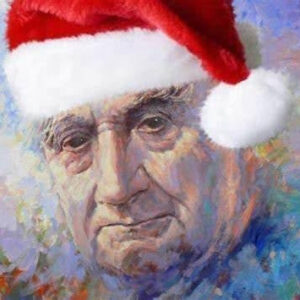
Ralph Vaughan Williams
Vaughan Williams composed the Fantasia on Christmas Carols in 1912. It was first performed at Hereford Cathedral during the Three Choirs Festival conducted by the composer. The single-movement work of roughly twelve minutes consists of the English folk carols The truth sent from above, Come all you worthy gentlemen and the Sussex Carol (‘On Christmas night all Christians sing’), all folk songs collected in southern England by Vaughan Williams and his friend Cecil Sharp a few years earlier. These are interposed with brief instrumental quotations from other carols, such as The First Nowell.
The music is typical of Vaughan Williams’ earlier style relying heavily on a juxtaposition of modal harmony alongside direct quotations from folk songs (or Carols in this instance) he collected himself.
The Fantasia opens with an evocative solo bass line, played by cello, which introduces the text of the first section, This is the truth sent from above, sung by the baritone soloist. The wordless choral accompaniment underscores the simplicity of this opening section, which concludes again with the solo bass line.
The second section, Come all you worthy gentlemen builds to use the full choral forces to proclaim “tidings of comfort and joy” before subsiding once more at the introduction of the third section. This is a setting of the Sussex Carol (“On Christmas night all Christians sing”), which Vaughan Williams himself had collected.
The final section interweaves the choruses of the second and third with instrumental references to a number of other carols and folk melodies. Finally the tranquility of the opening returns and the voices vanish into the distance.
